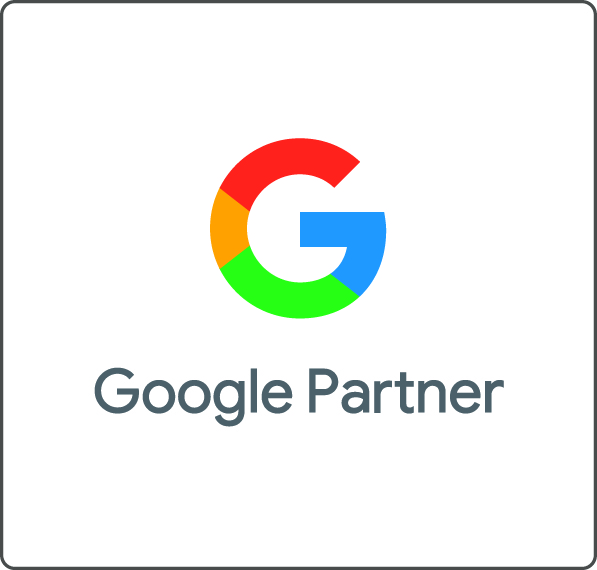Introduction
If you’re looking to drive more traffic to your website or generate leads for your business, Google Ads can be a powerful tool. Specifically, Google Search ads can help you reach customers who are actively searching for products or services related to your business. But with so many options and settings available, setting up a Google Search ad campaign can be overwhelming. In this guide, we’ll break down the steps required to set up a successful Google Search ad campaign, from defining your campaign goals to launching your ads and optimising for better results. Whether you’re new to Google Ads or looking to refresh your existing campaigns, this guide will provide you with a comprehensive roadmap to help you achieve your marketing objectives.
Let’s dive into the specifics…
Step 1: Sign in to Google Ads
The very first thing you should do is sign in to your Google Ads account. If you don’t have an account, create one by visiting the Google Ads sign-up page. Once you’re signed in, click on “Campaigns” in the left-hand navigation menu to begin creating your ad campaign.
Step 2: Define Campaign Goals
Before setting up your ad campaign, it’s important to define your goals. Ask yourself what you want to achieve with your campaign, such as increasing website traffic, generating leads, or boosting sales. Clearly defining your goals will help you choose the right campaign settings and track your success.
We have created a comprehensive guide about Google Ads campaign objectives so that you can understand it clearly.
Step 3: Create a New Campaign
Click on the “+ New Campaign” button in the Campaigns page to start creating your ad campaign. Google Ads will prompt you to select a campaign goal; choose the one that aligns with your defined goals. For a Search ad campaign, select the “Leads” or “Website Traffic” goal.
Step 4: Choose Campaign Settings
In this step, you’ll configure the settings for your campaign. This includes selecting the campaign type, geographic targeting, languages, and bidding strategy. Choose the appropriate options based on your target audience and campaign objectives.
Step 5: Set Budget and Bidding
Determine your daily budget, which is the maximum amount you’re willing to spend each day on your campaign. Google Ads offers various bidding strategies, such as manual bidding or automated strategies. Select the bidding strategy that suits your campaign goals and budget.
Step 6: Create Ad Groups
Ad groups help organise your ads and keywords. Create relevant ad groups based on your products, services, or themes. For example, if you sell shoes, you might have ad groups for athletic shoes, sandals, and boots. Enter a name for your ad group and set your default bid for keywords.
Step 7: Create Ads
This is where you’ll craft your actual ad copy. Write compelling headlines and descriptions that are relevant to your target audience and encourage them to click. Highlight unique selling points and include strong call-to-action statements. Experiment with different ad variations to see which ones perform best.
We have written an article that explains how to write Google ad copy that converts more clicks, which will really help you understand this.
Step 8: Choose Keywords
Selecting the right keywords is crucial for the success of your Search ad campaign. Conduct keyword research to identify relevant keywords that your target audience is likely to search for. Google Ads provides tools to help with keyword research, such as the Keyword Planner. Add your chosen keywords to your ad groups.
Step 9: Configure Ad Extensions
Ad extensions are additional pieces of information that appear with your ads, providing more visibility and click opportunities. These include sitelink extensions, call extensions, price extensions and location extensions, to name a few. Configure relevant ad extensions for your campaign to enhance your ad’s visibility and performance.
Step 10: Review and Launch
Before launching your campaign, take the time to review your settings, ad copies, keywords, and extensions. Make sure everything is properly configured and aligned with your campaign goals. Double-check your budget and bidding settings. Once you’re confident, click on the “Launch Campaign” button to start running your ads.
Step 11: Monitor and Optimise
Once your campaign is live, it’s crucial to monitor its performance regularly. Keep an eye on key metrics such as click-through rates, conversion rates, and cost-per-click. Identify areas of improvement and make necessary adjustments. This could involve refining your keyword list, adjusting bids, or optimising your ad copy.
Step 12: Track and Measure Results
Implement conversion tracking to measure the success of your ad campaign. Set up tracking tags or codes on your website to monitor conversions, such as purchases, form submissions, or sign-ups. Google Ads provides conversion tracking tools to help you measure the impact of your ads on your defined goals.
Let’s sum it up
In conclusion, setting up a Google Search ad campaign involves defining your goals, creating campaigns and ad groups, selecting relevant keywords, crafting compelling ad copies, and monitoring and optimising your campaign for better results. By following these steps and continuously refining your strategy, you can maximise the success of your Google Search ad campaign.
Remember that Google Ads is a dynamic platform, and it’s essential to stay updated with new features and best practices to make the most out of your campaigns. Good luck with your Google Search ad campaign! If you require help with setting up and optimising your Google Search Ads do not hesitate to get in touch with our Google Ads Cyprus team. After all we succeed by growing others!
FAQs - Frequently Asked Questions
It is an online advertising platform developed by Google. It allows businesses to create and display ads to users who search for specific products, services, or information relevant to their business. These ads can appear on Google search, YouTube, partner websites, and mobile apps, enabling businesses to reach a wide range of potential customers. Advertisers bid on specific keywords and target audiences to ensure their ads are displayed to the right people at the right time
Google Ads works by allowing businesses to create ads and bid on specific keywords and target audiences. The ads can be displayed at the top or bottom of Google search results pages, on YouTube, partner websites, and mobile apps. Advertisers pay only when people click on their ads and visit their websites. Google Ads uses an auction system where advertisers bid for ad placement, and the highest bidder wins.
The auction system is based on a number of factors, including bid amount, ad relevance, and the quality score of the ad. Advertisers can set a daily budget to control their costs, and Google Ads provides plenty of tools and resources to help businesses measure the effectiveness of their ads and adjust their campaigns accordingly
There are several benefits of Google search ads, including:
- Reach: Google search ads can help businesses reach a wider audience by displaying their ads to people who are actively searching for products or services similar to what they offer.
- Targeting: Google search ads allow businesses to target specific audiences based on various factors such as demographics, interests, and behaviors, enabling them to deliver their ads to the people most likely to convert.
- Cost-effective: Google search ads operate on a pay-per-click basis, meaning that businesses only pay when someone clicks on their ad. This can be an effective way to control costs while still driving traffic to a website.
- Measurable: Google search ads provide businesses with detailed analytics that can help them track the performance of their ads, measure the return on investment (ROI), and make informed decisions about future ad campaigns.
- Flexibility: Google search ads allow businesses to set a budget that fits their needs and adjust their campaigns as needed to optimize performance.
Overall, Google search ads offer businesses a powerful way to reach more customers, increase website traffic, and drive conversions.


